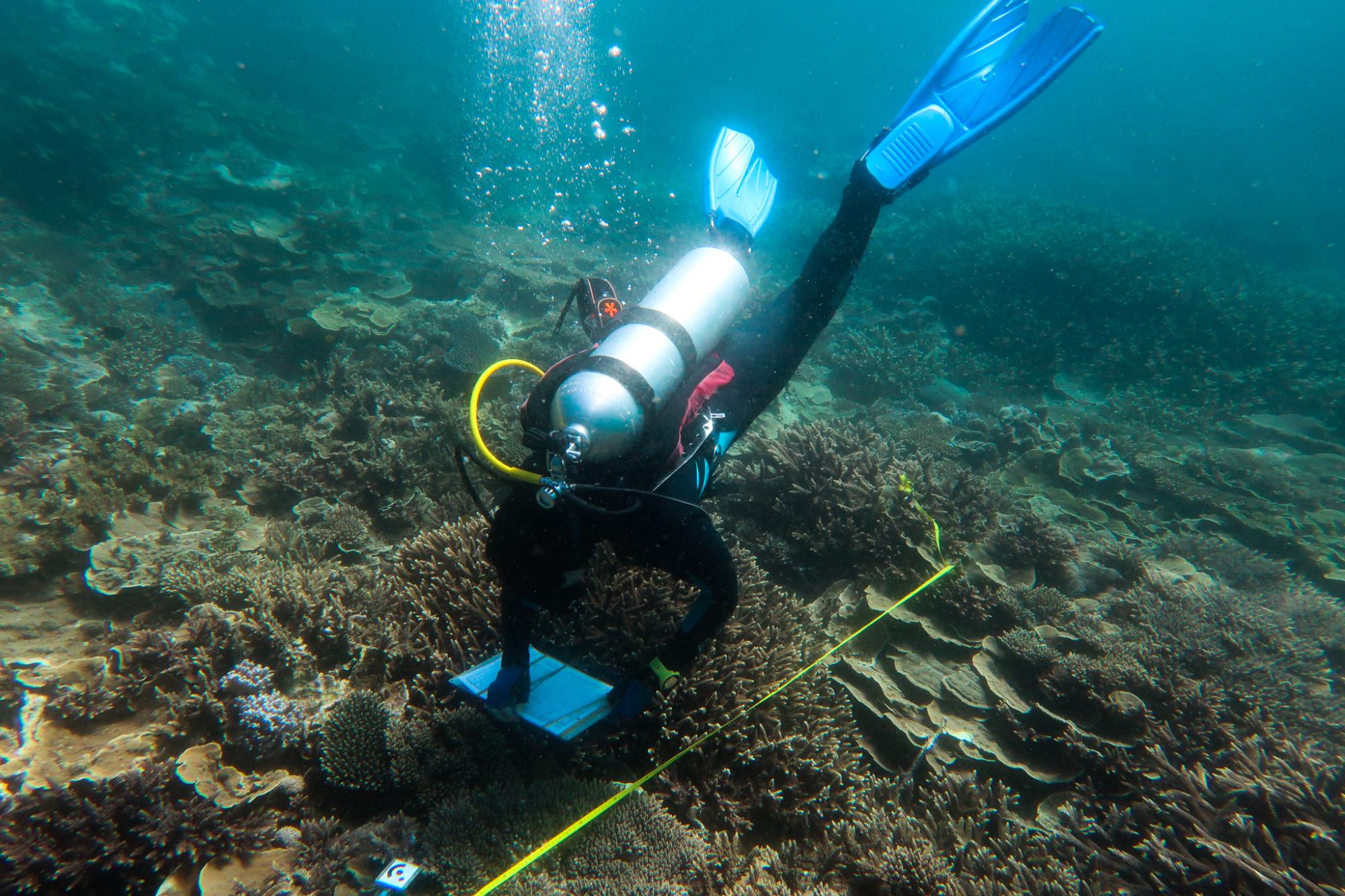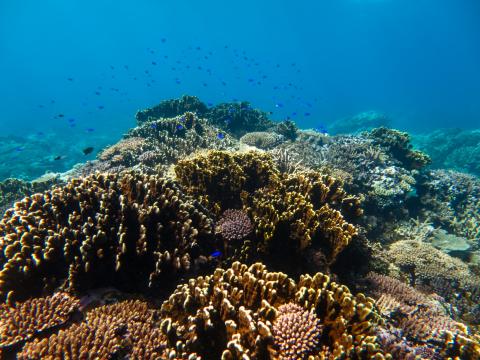
Under the right conditions, corals can recover from bleaching events.
This is the case for multiple reefs in the southern Great Barrier Reef, which avoided wide-spread mortality from the 2020 mass coral bleaching event.
These reefs escaped prolonged heat stress and did not have ongoing impacts from crown-of-thorns starfish – giving the corals a chance to bounce back from bleaching.
Australian Institute of Marine Science’s (AIMS) monitoring program team leader Dr Mike Emslie said the six reefs, spanning offshore between Shoalwater Bay and Agnes Waters, were observed closely by scientists because of their specific disturbance history.
“These reefs were the perfect candidates for our team to observe their recovery – the corals were not severely bleached and did not have extra stress from the coral eating starfish,” he said.
“What is often misunderstood is corals do not immediately die from bleaching – bleaching is a stress response, and they can recover if given the opportunity.

“Our preliminary results show these reefs appear to have had little impact from the 2020 mass coral bleaching, with an increase of hard coral cover at most reefs.
“This increase is what we predict in the absence of disturbance. The reefs were given the opportunity to recover because 75% of southern reefs were not exposed to sustained temperatures expected to cause mortality and were also free the from the additional stressors of crown-of-thorns starfish.”
Research Program Director Dr Britta Schaffelke said disturbances, such as crown-of-thorns starfish, can be significant in hindering the recovery process of reefs following bleaching events.
“AIMS scientists lead world-class research in this effort to understand cumulative impacts on coral reefs,” she said.
While the 2019-2020 mass coral bleaching event was the third event in five years, it was the first time such widespread bleaching has occurred in the southern region.
“These results are encouraging for the southern region – but we are still in the water conducting surveys all along the Great Barrier Reef to understand the full impact of the 2020 mass bleaching event, and indeed other disturbances, for both coral mortality and recovery,” said Dr Emslie.








